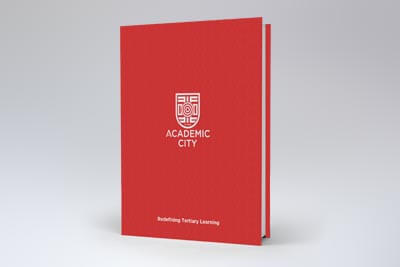.webp)

BSc Industrial & Systems Engineering
Leading Africa’s Industrialization Agenda
When the Peduase Declaration was made by the Government of Ghana in 2019, the unique initiative for widespread industrialization in Ghana set in motion the need to train young Ghanaians with the core capabilities in advanced manufacturing engineering technologies, systems integration protocols, advanced material systems, and integrated product development capabilities.
As nations across Africa turn to industrialization as the main driver for economic growth, mastering the skill for the innovative deployment of technology to enhance productivity cannot be overemphasized.
Academic City University College, Ghana has taken up the challenge to deploy a cutting-edge program in Industrial and Systems Engineering benchmarking leading institution across the world offering similar top-notch and time-tested programs
BSc Industrial & Systems Engineering at ACity
Industrial & Systems Engineering is a branch of engineering that designs, analyses, implements, and improves systems of people, information, and materials using mathematical, statistical, and scientific techniques. Such systems frequently involve complex human-machine interactions. Industrial & Systems engineers work hard to ensure that these systems are safe and efficient.
January 2026 Intake Is Open

Apply Now
Start your journey towards higher education by submitting your online application today! Click the 'Apply Now' button below and fill out the required information. Apply now and take the first step towards realizing your academic goals.
Top Careers In Industrial & Systems Engineering
.webp)
As a graduate of Industrial and Systems Engineering from ACity, you have a wide melange of possible career paths you can pursue. Our focus to ready leaders who can work and succeed as:
| Manufacturing Engineer | Quality Control Expert |
| Industrial Engineer | Robotics Engineer |
| Safety Engineer | Logistician |
Entry Requirements
Minimum C6 in 6 subjects including 3 core subjects (English, Mathematics, Integrated/General Science) and 3 elective subjects. (Physics, Elective Mathematics + Chemistry OR any other elective relevant to the chosen Program)
Minimum D or a pass in 6 subjects including 3 core subjects (English, Mathematics, Integrated/General Science) and 3 elective subjects. (Physics, Elective Mathematics + Chemistry OR any other elective relevant to the chosen Program)
Minimum of 5 credit passes in the IGCSE/O-Levels (Mathematics and English mandatory) and 3 passes in the A-Levels. (Elective/Add/Further Mathematics and Physics mandatory).
Minimum of 5 credit passes in the IGCSE/O-Levels (Mathematics and English mandatory) and a minimum score of 4 points in 3 Higher Level (HL) subjects. (Elective/Add/Further Mathematics and Physics mandatory)
Minimum of 50% overall average pass. (subject to approval NAB) Mathematics, English and Physics mandatory
Minimum GPA of 3.0 (Mathematics, English and Physics mandatory)

Want To Know
More Information
Get the course pdf or offline application form below
Course Outline
Communication Skills
French Language
Fundamentals of Innovation and Entrepreneurship (FIE) Seminar I
Introduction to Engineering
Introduction to Programming with Python
Physical Sciences
Pre-Calculus (with MATLAB)
Technology and Society
Analytic Geometry and Calculus I (with MATLAB)
Engineering Mechanics
Fundamentals of Innovation and Entrepreneurship (FIE) Seminar II
Introduction to Industrial and Systems Engineering
Introduction to Multidisciplinary Design
Logic and Critical Thinking
Sensors, Measurements and Instrumentation
Text and Meaning
Analytic Geometry and Calculus II (with MATLAB)
Computer-Aided Design and Manufacturing (CAD and CAM)
Computing in Industrial and Systems Engineering
Fundamentals of Innovation and Entrepreneurship (FIE) I
Introduction to Material Science and Engineering
Leadership Seminar I
Electricity and Optics
African Studies
Applied Linear Algebra (with MATLAB)
Data Management for Industrial and Systems Engineers (ISEs)
Fundamentals of Innovation and Entrepreneurship II
Manufacturing Processes I
Probability, Statistics and Reliability (with MATLAB)
Design of Experiments
Deterministic Operations Research - Optimisation
Differential Equations (with MATLAB)
Production Planning and Inventory Control
Leadership Seminar II
Manufacturing Processes II
Mechanics of Materials
Discrete-Event Computer Simulation
Human Factors and Ergonomics
Industrial Ergonomics and Work Measurements
Industry Internship
Probabilistic Operations Research - Stochastic Models
Project Management, Engineering Economics and Risk Analysis
Statistical Quality Control
Industrial Automation and Robotics
Lean Manufacturing
Logistics Engineering
Project Phase I
Technical Elective I
Technical Elective II
Environmental Science and Engineering
Occupational Safety and Hazard Control
Professional Ethics and Values
Project Phase II
Technical Elective III
Technical Elective IV
Electives
Micro and Nano Manufacturing
Welding Engineering
Digital Manufacturing
Laser Processing
Computer Control of Manufacturing Processes
Industrial Robotics and Flexible Assembly
Industrial Control Systems
Optimization of Large Systems
Advanced CAD and CAM
Computer Aided Design and Prototyping
Advanced Manufacturing Processes and Practices Quality Control
Design for Manufacturability
Advanced Manufacturing Processes
Integrated Production Systems
Advanced Manufacturing Operations
Artificial Intelligence and Expert Systems











